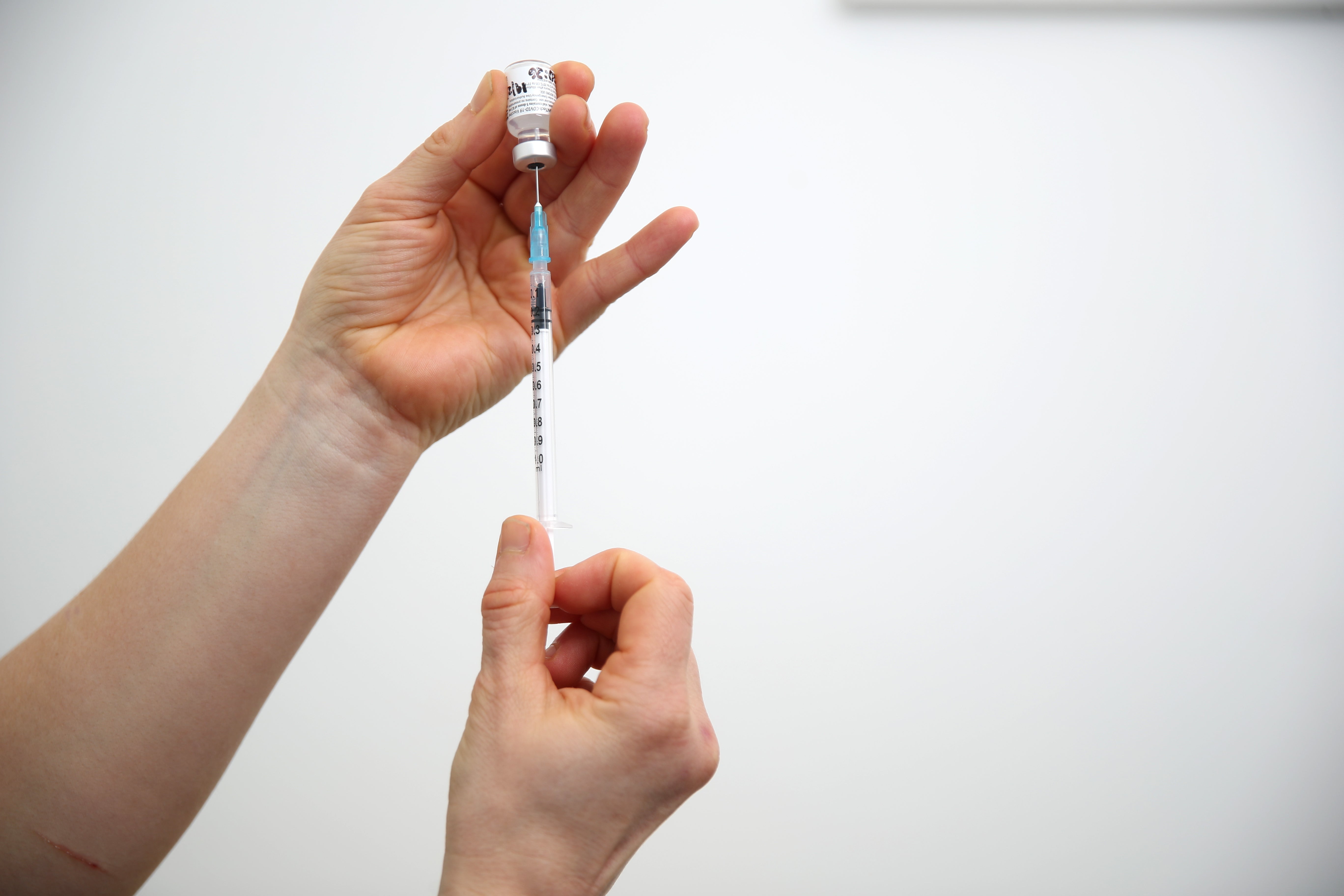Covid-19 vaccine ‘reduces infections in children’ – study
It is expected that five to 11-year-olds in England will be called forward for vaccines in April.

Your support helps us to tell the story
From reproductive rights to climate change to Big Tech, The Independent is on the ground when the story is developing. Whether it's investigating the financials of Elon Musk's pro-Trump PAC or producing our latest documentary, 'The A Word', which shines a light on the American women fighting for reproductive rights, we know how important it is to parse out the facts from the messaging.
At such a critical moment in US history, we need reporters on the ground. Your donation allows us to keep sending journalists to speak to both sides of the story.
The Independent is trusted by Americans across the entire political spectrum. And unlike many other quality news outlets, we choose not to lock Americans out of our reporting and analysis with paywalls. We believe quality journalism should be available to everyone, paid for by those who can afford it.
Your support makes all the difference.A single dose of the Pfizer Covid-19 vaccine can reduce infections among children, a new study suggests.
And if a child gets Covid-19 after being vaccinated they are “likely to have a milder disease”, researchers from King’s College London and ZOE Ltd said.
While the Covid-19 vaccines have been shown to ward off serious disease and death, questions have arisen over their ability to reduce the spread of infections.
The latest study examined the effectiveness of a single dose of the Pfizer/BioNTech Covid vaccine in children.
Researchers examined information on 115,775 children aged 12 to 17 through the Covid Symptom Study app.
They looked at data between August 5 2021 and February 14 this year – meaning that the study looked at effectiveness of the jab as different variants swept the UK.
Of the children involved in the study, 25,971 received one dose of the vaccine.
Experts found that the chance of being infected by the Omicron variant – the one widely circulating in the UK at the moment – reduced by 53.7% between 14 and 30 days post-vaccination.
This increased to a 63.7% reduced risk of infection 61 to 90 days after the jab, according to the pre-print study, published today on MedRxiv.
Even a single dose of the Pfizer vaccine means children and young people are less likely to get COVID-19, and if infected post-vaccination they are likely to have a milder disease course – at least for Delta and Omicron variants.
Researchers said that children were more likely to dodge Covid after being vaccinated if they had previously caught Covid-19.
They said that vaccinated children and young people who got Covid during the Delta wave of infections had milder disease than unvaccinated children.
But during the Omicron wave this was only evident in children aged 12 to 15, and not the 16 and 17-year-olds involved in the study.
Senior author of the study Professor Emma Duncan from King’s College London said: “Our paper will provide useful information for parents considering vaccinating their children against Sars-Cov-2.
“Even a single dose of the Pfizer vaccine means children and young people are less likely to get Covid-19, and if infected post-vaccination they are likely to have a milder disease course – at least for Delta and Omicron variants.
“Our paper is also reassuring that Omicron in children is usually mild, even in unvaccinated children.”
Many parents will be weighing up whether or not to take up the offer of a vaccine for healthy children aged five and over – with jabs to be rolled out within days in Scotland and from April in England.
Children in Northern Ireland and Wales are already able to book their vaccine.